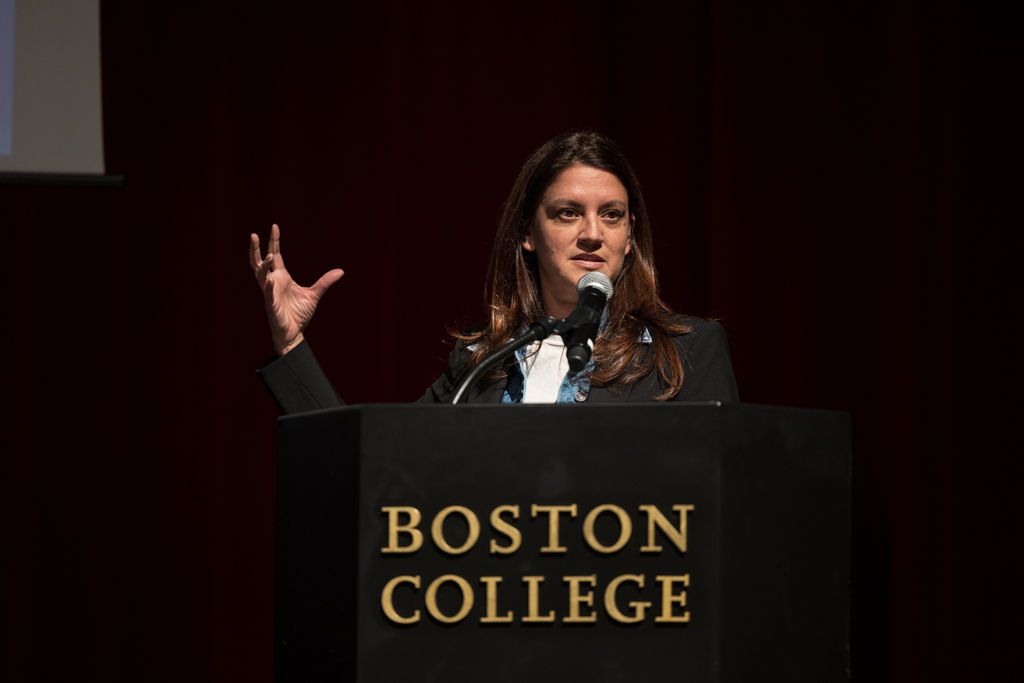Tackling Childhood Malnutrition
Child hunger and malnutrition are grave problems, but the solution is within reach, according to Navyn Salem, founder and CEO of Edesia Nutrition.
“How on earth can children be dying from a lack of food and nutrition in this day and age?” Salem asked. “There are over 8,000 children that will die today when we have a completely rational solution in our back pockets that we know how to implement.”
Salem ’94, a Boston College Board of Trustees member, founded Edesia, a nonprofit social enterprise seeking to treat and prevent malnutrition in developing countries while balancing a sustainable profit. The company produces Plumpy’Nut, a peanut-based paste with a formula of nutrients designed to improve severely malnourished children's health and cognitive functioning.
“Not only are we trying to save lives, but we’re trying to build brains,” Salem said. “So the micronutrients—the vitamins and the minerals that are in these products—help build brains. That is something you cannot take away from a child—ever.”
Salem said Plumpy’Nut can be easily distributed, allowing it to serve millions of people in need. “[Plumpy’Nut] can be taken at home and doesn’t need to be mixed with water or be refrigerated, which means we can go to really hard-to-reach places far out in rural areas, and our reach becomes enormous,” Salem said. “We want to make sure that we can reach as many kids as possible.”
According to Salem, Edesia has served over 20 million children since its founding and is on pace to reach half of the world’s malnourished children by the end of this year. She said the idea for Edesia came after she visited a clinic in rural Tanzania and felt propelled to solve the malnutrition issues she saw there. “I heard the sound of a mother who lost her child, and I will never forget that sound of her cries,” Salem said. “And I thought to myself, ‘Here I am—completely inexperienced—but I’m gonna go home and figure out what needs to be done.’”
Salem said social enterprises like Edesia allow entrepreneurs to grow successful businesses while fostering social change worldwide.“You can actually make profits even when you are a social enterprise,” Salem said. “In fact, a [social enterprise] probably has a greater likelihood of being successful because it’s authentic in what you believe, what your values are, and how you tie them together.”
Edesia hopes to sell products that proactively prevent malnourishment in the future. “Mortality rates will drop significantly if we start to work on prevention and not wait until children are weeks away from death,” Salem said. “It’s better for children economically, ethically, and morally. There’s no money for this at the moment, but we will change that.”
Salem said Edesia recently received a $137 million grant from the Bezos Family Foundation to expand manufacturing capacity and develop new products to prevent malnutrition. “One day, I happened to be in a room giving a presentation and somebody took notice—and their last name happened to be Bezos,” Salem said.
Concluding her lecture, Salem encouraged students to look for innovative ways to improve the world around them: “Go out into the world, even if it’s just down the street, and keep your eyes open.”
“Look for problems and view them as opportunities.”
Adapted from The Heights article by Jack Beckman '27
Presented with the Portico Program and BC Career Center




